Caesar and Cleopatra (1944-45) (released January 1946)
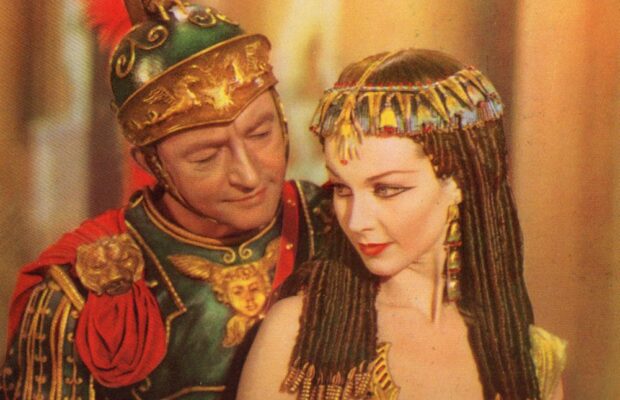
Toronto Film Society presented Caesar and Cleopatra (1945) on Monday, July 16, 1984 in a double bill with Cleopatra as part of the Season 37 Summer Series, Programme 2.
[The original British release print was 135 or 138 minutes; this print is 127]
Production Company: Gabriel Pascal Productions. Distribution Company: Eagle-Lion (J. Arthur Rank). Producer: Gabriel Pascal. Director: Gabriel Pascal. Scenario and Dialogue: George Bernard Shaw, Marjorie Deans, and W.P. Lipscomb, from the 1898 play by Shaw. Music: Georges Auric, played by the National Symphony Orchestra, conducte by Muir Matheson. Decor and Costumes: Oliver Messel. Camera: F.A. (Freddie) Young, Robert, Jack Hildyard, and Jack Cardiff.
Cast: Vivien Leigh (Queen Cleopatra), Claude Rains (Emperor Julius Caesar), Stewart Granger (Apollodorus), Anthony Harvey (King Ptolemy XIV), Flora Robson (Ftatateeta), Francis L. Sullivan (Pothinus), Renee Asherson (Iras), Basil Sidney (Rufio), Cecil Parker (Britannus), Olga Edwardes (Charmian), Ernest Thesiger (Theodotus), Raymond Lovell (Lucius Septimius), Stanley Holloway (Belzanor), Anthony Eustral (Achillas), Leo Genn (Bel Affris), Alan Wheatley (Persian guardsman), Esme Percy (Major-Domo), Gibb McLaughlin (High Priest), James McKechnie, Michael Rennie (Centurions), Jean Simons (Girl).
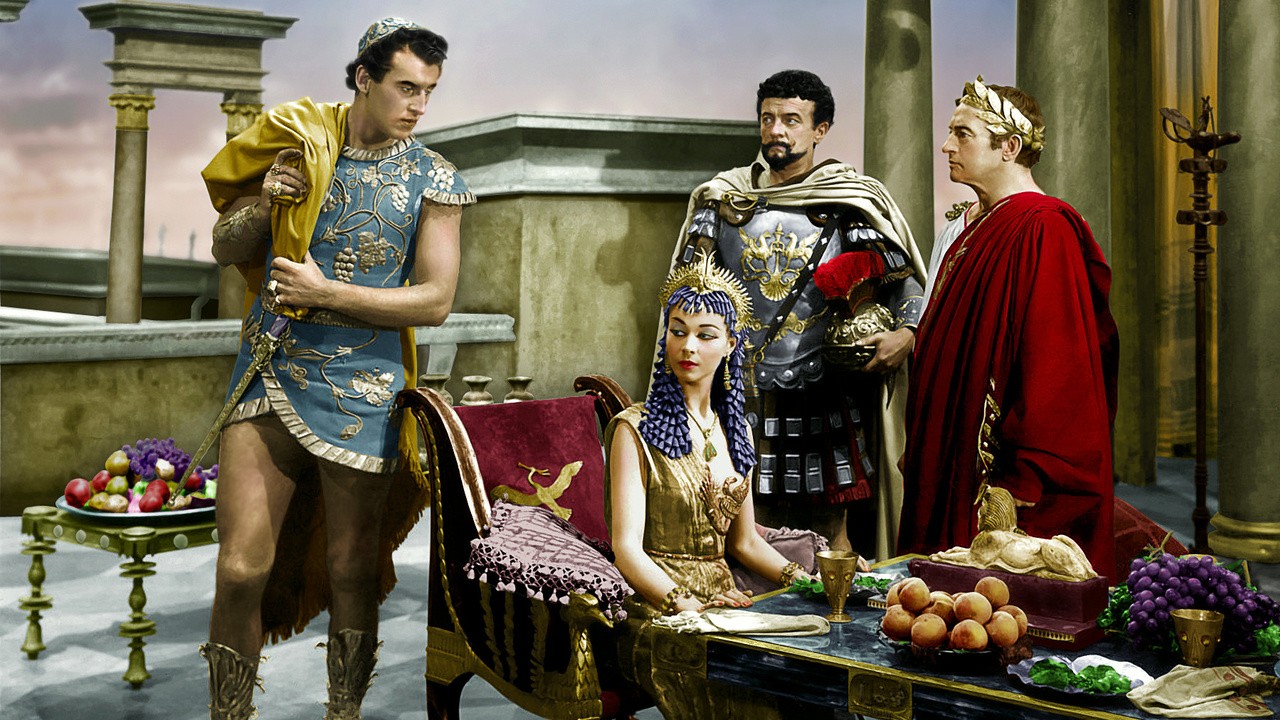
George Bernard Shaw, an Irishman, revolutionized the English stage and went from poverty to become the wealthiest author who ever lived. In 19906 he wrote: “I am, and have always been, and shall always be, a revolutionary writer.” His plays were consistently banned by the Lord Chancellor (which might give those who espouse film censorship pause to consider censors’ wisdom), but his persistent social criticism was rewarded by a Nobel Prize in 1926. Although his plays burned with passion, it was seldom of a sexual nature, and nothing is more typical of GBS than that he would have chosen the encounter in 48 B.C. between the teen-aged Queen and the middle-aged Caesar rather than her tempestuous love affair with Antony, as Shakespeare had done. In his preface to Three Plays for Puritans (of which this was one), Shaw wrote in 1910, in the section “Better Than Shakespear?”, “it will be said that these remarks can bear no other construction than an offer of my Caesar to the public as an improvement on Shakespear’s. And, in fact, that is their precise purport.” The play is an incisive and witty examination of the nature of monarchical rule, and a disquisition on the theory of government as Caesar instructs the young Cleopatra in how to be a wise and noble queen, and illustrates his philosophy of rule by his own example.
It was inevitable that Shaw’s plays would find their way to the screen. He had written in 1914, “The cinema is a much more momentous invention than printing was . . .the cinema is going to produce effects that all of the cheap books in the world could never produce.” However, after being burned a couple of times, Shaw denied his plays to the movies. Thus, one can scarcely imagine the shockwave that went through the British movie industry when it was announced that GBS had entrusted the screen rights to everything he had written to a Hungarian then working as a server in a Hammersmith fish and chip shop, named Gabriel Pascal. “Until Gabriel Pascal descended on me out of the clouds,’ Shaw wrote, “I could find nobody who wanted to do anything with my plays on the screen but mutilate them, murder them, give the cadavers to the nearest scrivener. . . His studio was immediately infested with script writers and he thought everything they did was wrong and everything I did was right. Naturally I quite agreed with him.”
Pascal’s first Shaw production was the immense international success Pygmalion, followed by Major Barbara and then Caesar and Cleopatra. If Pascal and Shaw were the oddest couple in movie history, the fact is that Pascal made superbly faithful, tasteful and sensitive movies of these plays which stand head and shoulders above almost anything else ever done to put Shaw on the screen. “You English,” Pascal said, “you do not understand Shaw. You do not realize he is, yes, he is the great heart. He is the highest spirit in the world. I vibrate with his vibration in every word.”
The line in Caesar and Cleopatra are exactly as written for the stage, and GBS himself worked on the scenario and dialogue. Pascal even asked Shaw to appear in the film, but he declined, saying “One Sphynx is enough.” It is an immense spectacle with a cast of over 100, and took more than a year to make, during the course of which the original director, Brian Desmond Hurst, left; it cost £1,300,000 (the equivalent of over $6,000,000 at that time), making it the most expensive movie ever made to that date. “Talb” in Variety commented: “the prodigality of this one makes Griffith & DeMille & Von Stroheim look like niggards.” Cleo does seem to do that to movie people, doesn’t she?–the 1963 Cleopatra also broke that record. Enraged at such profligacy at a time of austerity in Britain, the British association of film technicians passed resolutions that were designed to, and did, drive Pascal out of Britain. Thus, the temptress of the Nile struck across 2,000 years to end one of the most promising of artistic collaborations.
Notes by Ron R. Anger

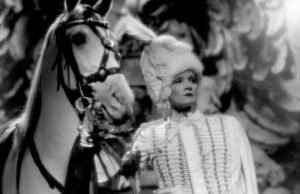
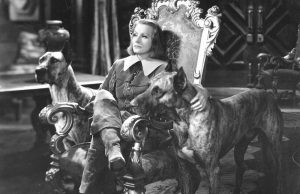
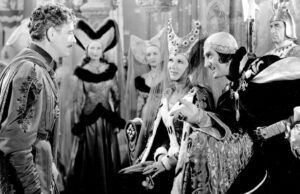






Leave a Reply